- Demographics
- Personal Information
- Personal Goals
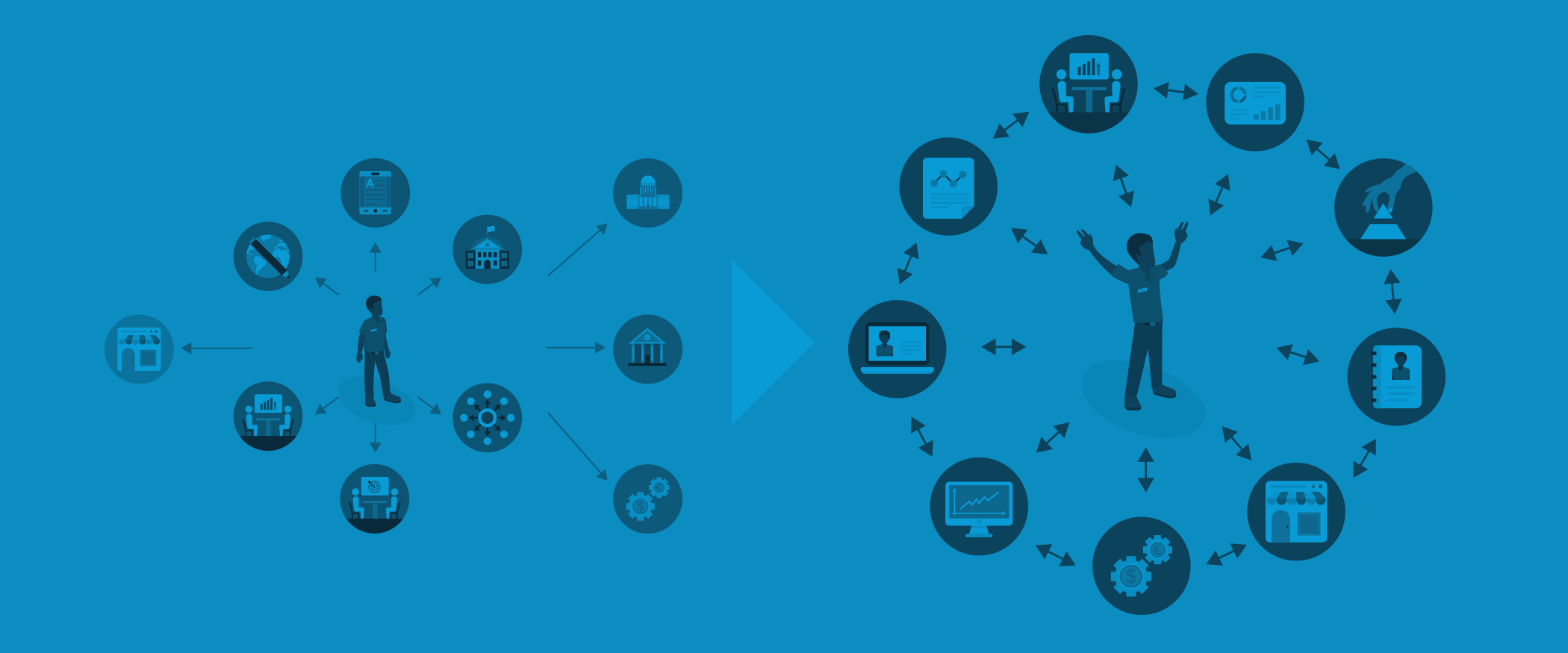
Frontline workers are the workers at the frontlines, who deal directly with customers and deliver services.
< $30K Majority make less than $30K per year
< 35 years 30% are under 35
Low education levels Most have less than an associate's degree

89% of employers who hire frontline workers offer education/training opportunities
73% of those employers don't know how many employees take advantage of opportunities
60% do not view frontline worker upskilling as a high priority
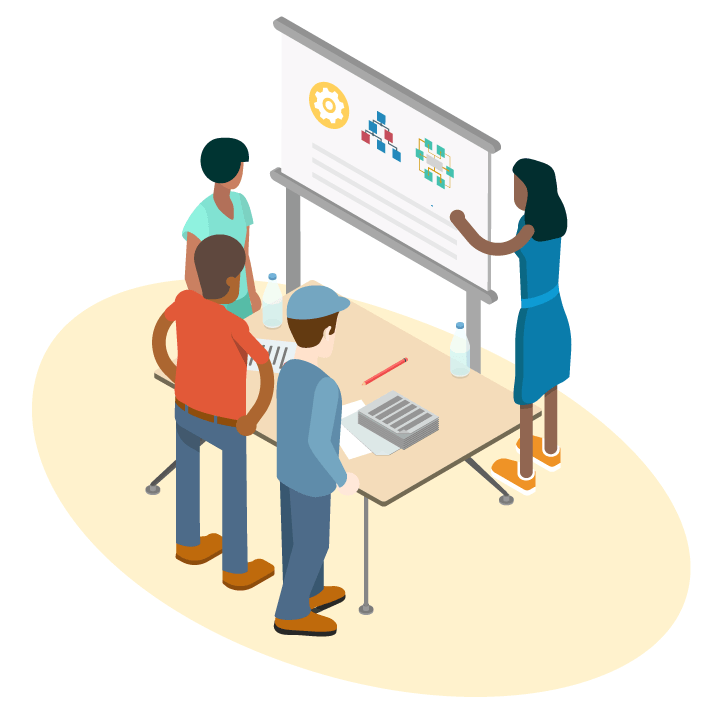
1 in 10 workers participated in an adult education class in the previous year
27% pursued a formal degree or certification in the last year
39% pursued other types of educational opportunities
69% pursued educational opportunities because of a job
1 in 3 say logistical barriers keep them from pursuing or completing education
50% drop out of their adult education class within 12 hours of starting
51% say that the education they've had in the last year was only somewhat useful or not useful
Frontline workers may not be getting the education and training they need. They lack the data regarding their own skills and learning, and they don't know what skills employers need in quality workers. Access to this data would help workers make decisions about how to advance their skills.
Having the right data will equip frontline workers with the agency and knowledge to make informed decisions about their future, and will equip stakeholders with information needed to deliver high-quality services.



Frontline Workers can access their data to make informed decisions
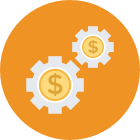
Funders can make informed, strategic investments

Employers can maintain an effective workforce and support their frontline workers

Programs / Providers can deliver relevant and high-quality services
How do we get from here to there?
Data Sharing and Interoperability
The current learning ecosystem that serves frontline workers is complex, siloed, and not set up to enable workers to direct their own pathways. Despite the amount of data collected, the processes and systems in the ecosystem do not support the flow of data between stakeholders or frontline workers.
Many different types of data are collected across the learning ecosystem.
= click or tap for more info









Different stakeholders collect the same data about the same frontline worker. Even within a single organization, staff often are collecting duplicative data.
"There's a lot of data that's being collected that needs to be used more strategically. I think that the workforce system tends to collect data for reporting purposes, which oftentimes limits what you can learn from it."
Provider
"This data collection, measurement, and analysis has influenced us to serve fewer people but serve them more deeply and more holistically. We used to be very output-driven. My annual goal was to increase placements by 5% and to increase the number of people we serve by 5%. We really saw the average wage dropping, we saw the employment retention numbers dropping. Moving forward, we are measuring our success in self-sufficiency and long term sustainable living wage employment."
Provider
= click or tap for more info
"I think one of the barriers learners face when trying to access services is knowledge of the system."
Provider
"There is a lot of fragmentation, but I think it's time to take all of that fragmentation and bring it together into some generally accepted, harmonized model aligned to industries' needs."
Vendor
Overall, technology products, workforce development systems, and policies and practices that define, collect, store, and report data do not make data sharing easy.
Privacy and security regulations can be a barrier to sharing due to a general lack of understanding among stakeholders.
"I think that there's fear in big data. I think the biggest concern is, Who will have access to the information? Is it EOC compliant [or] OFCCT compliant? Who's going to have access to this information?"
Employer
"We have audits regularly on our data and how we're protecting it. You have to work through the legalities of sharing it—who has it, when should they have it, who shouldn't have it—[with] multiple, ongoing conversations. Some specific regulations make it difficult to collect and access data."
Government Agent
The policies and practices surrounding funding and data governance discourage collaboration and data sharing, rather than incentivize it.
"A lot of it is getting everyone involved on the same page about what we are really trying to do, who gets to use which data and for what purpose, and how are we going to make sure we keep each other in the loop so it still gets executed like a collaborative program as opposed to everybody going off in their own direction."
Government Agent
"There are so many different types of data. Some people think we should share data, but the question of which data and for what purpose is rarely answered coherently. Everyone kind of conceptually agrees that we should all share our data. That's the easy part. The harder part is, to what end?"
Workforce Board
The technology products and systems used by stakeholders to collect and report data do not “talk” to each other, making the seamless transition and sharing of data between those systems difficult.
= click or tap for more info
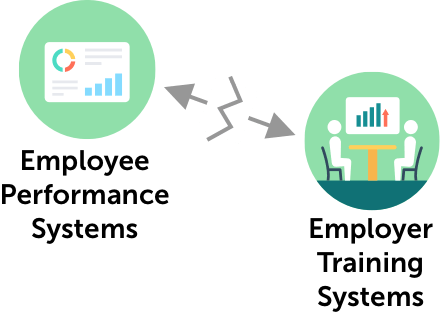
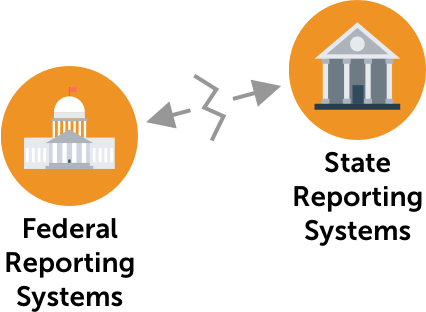
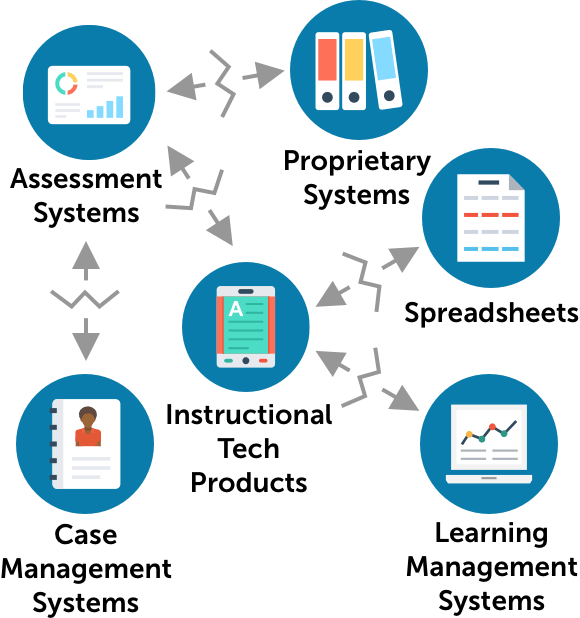
"Most of the data collection systems are unique for each of our services. We do not have one for all of the services our nonprofit offers."
Provider
"Even on individual data, though there is some standardization, there is a lot of variability in definitions as they are applied for each variable. You know, what does ‘enrollment' mean, what does ‘completion mean'? There's a lot of variability."
Funder
While there are existing efforts to develop data standards around education and learning (IMS Global, Ed Fi Alliance, CEDS), to date few have focused on developing a set of standards and APIs that allow data to be seamlessly imported and exported between products/systems in the workforce development learning ecosystem.
However, one new effort by the T3 Innovation Network seeks to promote collaboration, interoperability, and harmonization among standardization initiatives related to the credential ecosystem by cataloging, sharing, and mapping data models, standards, and schema. The work will produce a common set of rules for the way data is described and recorded so that it can be more easily shared, exchanged, and understood by computers and online applications.
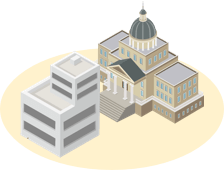
Improved investment decisions

Improved talent pipeline

Yields improved programs and services

Increased agency and informed decision making
"I think there's a lot of energy around the use of workforce data. I am interested in seeing how we can all work together versus all of us having our siloed approaches to it. Ultimately it comes down to facilitating or brokering relationships and data sharing."
Funder
"Now we have six organizations that we are building sustainable, ongoing, engaged partnerships with. In those partnerships, we are sharing data about career progression, retention rates, completion rates and anything that we're able to share with respect to the employee or new hire experience to make informed decisions that better serve our clients."
Provider


Read how the South Lake Tahoe, CA community is sharing data to empower their frontline workers.
Check out the cross-sector, data-driven process Rhode Island developed to achieve its statewide workforce development goal.
Learn from the strategies deployed by healthcare industry employers to improve their talent pipeline.
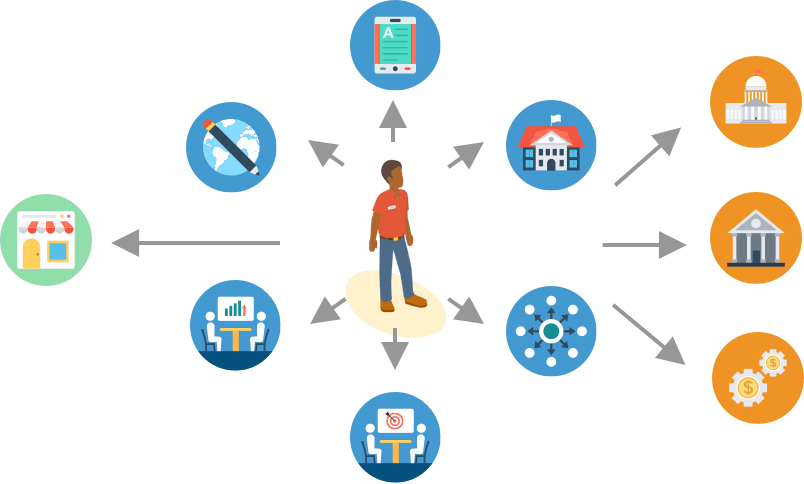
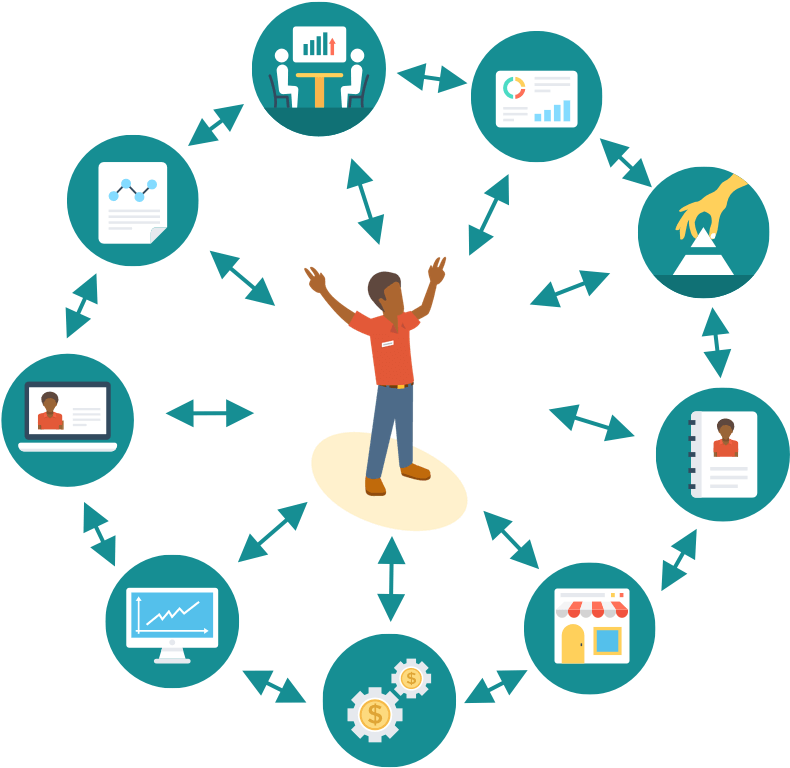
To move toward a more data-driven, collaborative, worker-centered learning ecosystem we have six key recommendations:
While most stakeholders are encountering many of the challenges outlined above, there is limited awareness around the benefits of data sharing and little demand for systems and policies that enable data interoperability.
We Recommend: Building on the work of Project Unicorn, create an awareness campaign directed at providers, funders, and employers that promotes the benefits of using and sharing data, provides resources that deepen understanding, and actively calls on stakeholders to demand systems and policies that enable data interoperability.
Key to the empowerment of the worker/learner is ensuring that they have access to their own data, know how to interpret that data, and know how to use it to make decisions about their own learning pathways.
We Recommend: Develop a pilot project, similar to the work happening in South Lake Tahoe, CA, in which workers/learners are purposefully granted access to their own information and data, are coached on how to access, interpret and use that data to achieve their own goals, and are provided opportunities to make decisions and pursue self-driven pathways. Broad communications of the findings from this pilot would inform strategies to provide access and to educate workers about data use, and provide insights on the outcomes and results of self-driven pathways.
Stakeholders beginning their collaboration and data sharing efforts would benefit from access to resources to help manage through the process, in particular around data privacy, security and data governance.
We Recommend: Create a repository of resources, similar to the forthcoming WorkforceEdTech tools repository, including those related to privacy and security (MOUs, data governance documents), vendor and system evaluation rubrics, and case studies of successful examples of data sharing and collaboration among stakeholders.
Many stakeholders point to the need for common definitions and language used to describe the many types of data being collected and reported as well as a way to seamlessly import and export data between systems to reduce the need for duplicate, manual entry. Data standards and APIs for this learning ecosystem are non-existent or incomplete.
We Recommend: Join with standards groups including IMS Global, EdFi Alliance, and T3 Innovation Network to include key data types, data standards and APIs used in the adult and workforce learning ecosystem. Advocate for the use of those standards and APIs in the systems used by states, communities, and providers to enable data import and export by developing RFP language and incentives for participation.
Current policies and funding models do not promote or incentivize data sharing across stakeholders. In fact, many policies seem to propagate a siloed approach. The learning ecosystem needs to understand what kinds of policies and incentives might encourage a more open data sharing environment.
We Recommend: Building on the work initiated in the state of Rhode Island, develop a pilot project at the state level to find ways to incentivize cross-sector stakeholders to collaborate and share data to build effective career pathways. The project would look to understand effective incentives for each stakeholder and how those might translate into formal policy.
The landscape analysis revealed a shortage of technology systems that enable any kind of data sharing, even as simple as data import/export. The future of data interoperability relies on creating the systems that can help stakeholders collect, report, and use data to make decisions and create more effective learning pathways for frontline workers.
We Recommend: In addition to including vendors as targets for the awareness campaign, work with edtech and workforce tech accelerators, incubators, and investors to encourage the development of technology that not only helps collect data, but also enables data sharing across stakeholders and systems.
A connected learning ecosystem will require identification of and collaboration between a diverse set of stakeholders, breaking down the silos that promote redundant and disconnected workforce development programs.
We Recommend: Create a consortium of national leaders and advocacy groups focused on workforce development, data sharing, data interoperability, and data security and privacy to establish guiding principles, best practices, resources for improving understanding, and to make progress on the six recommendations above. A key mandate for the consortium should be supporting equity and inclusion across the ecosystem. In addition, the consortium will also multiply impact through communication among each organization's constituents.
If you are interested in Data Standards, check out the work the T3 Innovation Network is doing.
If you are interested in Data Governance and Privacy, check out this guide from the National Neighborhood Indicators Partnership.
If you are interested in updates about the national consortium, join the mailing list.
The research included in this report was made possible through funding by the Walmart Foundation. The findings, conclusions, and recommendations presented in this report are those of Digital Promise alone, and do not necessarily reflect the opinions of the Walmart Foundation.